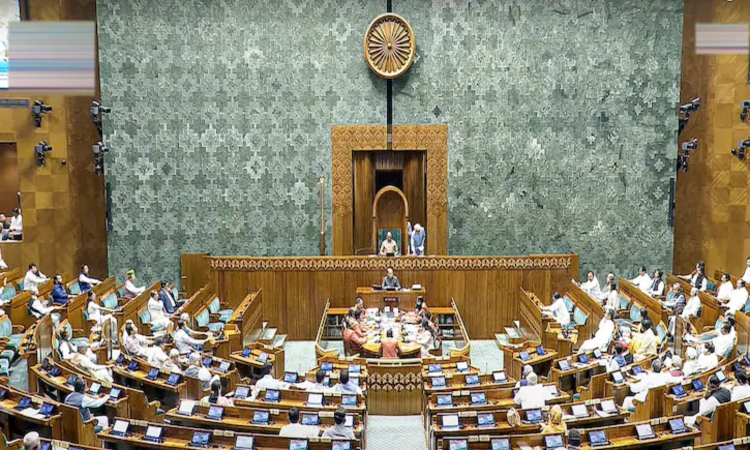Editorial: Are we strong enough to be muscular?
PMs choose to chair the meetings when the government wants to signal the importance of the upcoming session or when critical legislation is to be tabled

Parliament’s monsoon session (PTI)
CHENNAI: In the all-party meeting held on Sunday, July 20, on the eve of Parliament’s monsoon session, the BJP-led Union government was represented by Minister for Parliamentary Affairs Kiren Rijiju and his junior, Arjun Ram Meghwal. As we have come to expect of Narendra Modi, the Prime Minister skipped the meeting, as he did the two previous all-party conferences held in the past four months, one after the Pahalgam terror attack on April 22 and the other after the military confrontation with Pakistan on May 7.
It’s not a hard-and-fast convention that the Prime Minister attends all eve-of-session all-party meetings. Typically, PMs choose to chair these meetings when the government wants to signal the importance of the upcoming session or when critical legislation is to be tabled. Modi, who is reticent towards lesser legislative conventions (except when ceremony is involved), chooses to attend when he needs the Opposition on board, or when he wants to signal that he is above accountability to it.
So, the signal from Sunday’s all-party conclave is that the government is not going to be all ears to the Opposition’s demands in the month-long monsoon session beginning Monday. This is unfortunate, especially because several important issues need clarity from the government at this juncture.
The most crucial of these are foreign policy issues arising from the Pahalgam terror attack and India’s response to it. First up, the Opposition is justified in asking what progress has been made by the investigation into the Pahalgam attack in which 26 tourists were killed by terrorists. The generic details of the attack and the attackers’ antecedents, as divulged by the National Investigation Agency, have not been sufficient to sway international support India’s way. The NIA claims it has communication intercepts connecting the attackers to Pakistani handlers, but this was not enough to result in tangible action against Pakistan by the UN Counter-Terrorism Committee.
The Prime Minister also needs to explain to the nation whether India’s so-called “muscular response”, now being touted as a “doctrine” that will guide future responses to cross-border terror incidents, yielded the deterrence dividend at all. He needs to address the criticism that the aerial strikes achieved no deterrence and ended up bringing China into the Indo-Pakistani security mix. Worse, they invited an irksome guest to the party, Donald Trump.
The Prime Minister and his foreign minister have been extremely reticent on these short-term results from their muscular policy. The monsoon session is a good occasion to elaborate on the workings of their “doctrine” and the results it promises to bring in the future.
Furthermore, the PM needs to come forth on losses suffered by the Indian Air Force during the May 7-10 confrontation. Pakistan continues to crow about taking down six Indian fighter jets, and senior Indian military officials have so far alluded to losses without numbers. And now the truth-challenged American President has jumped in to put the number five to it. Whatever the number, these losses have implications for India’s security, not least because India’s military systems will have to be benchmarked against Chinese weaponry from hereon. The PM needs to assure the nation that its defence hardware and software are robust enough for the challenges that muscular “doctrines” will inevitably bring. Hope the PM will use the monsoon session to take the people into confidence.



